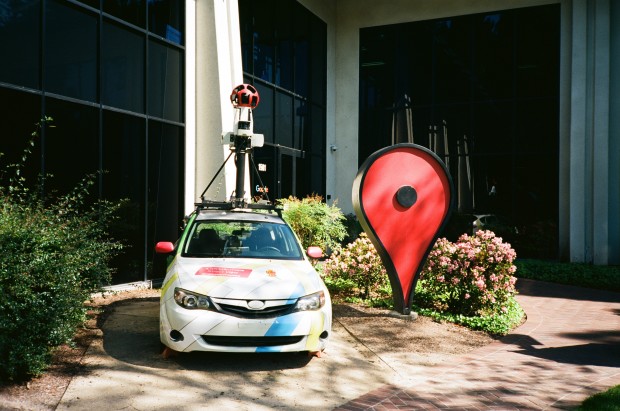
Google is the top name in terms of digital navigation. Google Maps, according to Gitnux, has around 1 billion active users every month. More than 40% of smartphone users open Google Maps at least once a week, and more than 65% of everyone who uses map apps prefers Google Maps over the competition.
While it's not clear exactly how many users Apple Maps has, Apple is Google's closest competitor with about 10% market share, compared to Google's 70%.
DON'T MISS: What Apple Users Might Expect to See in iPhone 15 Release
But both Apple (AAPL) -) and Google (GOOG) -) might have a lot more competition coming their way soon. A coalition of Big Tech giants -- Meta (META) -), Microsoft (MSFT) -) and Amazon (AMZN) -) -- teamed up with mapping company TomTom in December 2022 to launch Overture Maps Foundation.
The point of Overture is to provide developers with extensive, up-to-date and open-source mapping data so that companies can build out useful digital navigation tools with as many layers of customization as they choose.
"Maps have become increasingly important in the economy. Think of all the places that they're used -- consumer mapping apps or applications that are built on maps, so think about ride-sharing, or delivery, or hotel search," Marc Prioleau, Overture's executive director told TheStreet. "There was a whole variety of reasons we felt that should be, number one super high quality, but number two, open and a shared asset."
Maps, Prioleau said, used to be stagnant; there was no way to add interesting layers to them. Now, though, there are tons of data sets developers can layer on top of a strong base mapping layer. A map of places tells people where a coffee shop is, but the more engaging data elements go beyond the mere physical existence of certain things.
More Technology Stories:
- The Company Behind ChatGPT Is Now Facing a Massive Lawsuit
- Prominent EV Company Says Latest Deal Will Be the First of Many
- Why Analyst Dan Ives Believes These Two Tech Companies Are Worth Betting On
"The real interesting stuff is the reviews," Prioleau said. "Ride-sharing companies want to know: 'Where do I drop you off for that?' Delivery companies want to know: 'Where does my delivery driver park and how do they walk to the place?' DoorDash wants to know: 'Where do I go to the back kitchen entrance?' So the existence of the place is the starting point."
Finding a Better Way to Look At the World
The company's mission is to build out a strong base layer that then anyone can add to.
Prioleau said that a company like Facebook could add social media components to that base layer, such as social media reviews of a restaurant or shop. Amazon, which provides commercial services to enterprises, would have its own unique set of data it could add to a basic map.
But Overture isn't just leveraging mapping technology to be more accessible. The company is also employing new methods of updating its datasets to ensure that its base layer is as up-to-date as possible.
The old method of mapping relied on surveillance vans that would traverse the roads around the world; refreshing them, Prioleau said, could take up to 18 months as it depended on sending out another van.
Now, companies like Overture can study their navigational data, and if they see people driving across a line that their map previously marked as a field, "chances are, there's a road there," Prioleau said.
"The value proposition is if you get enough companies around this, you start to get different signals about the world," Prioleau said. One kind of signal might be a survey, one might be social media signals and another might be ride-share or delivery routes. "The way to build this really complete, accurate and up-to-date base map is you get a lot of people looking at it from different angles and the more angles you get, the better resolution you get on what the world looks like."







